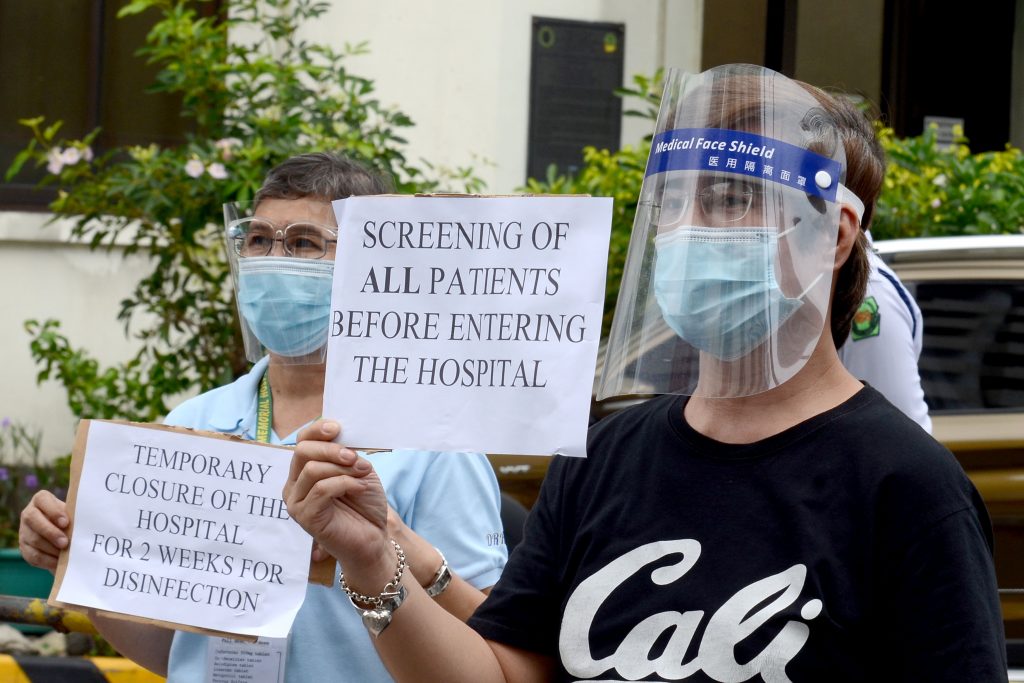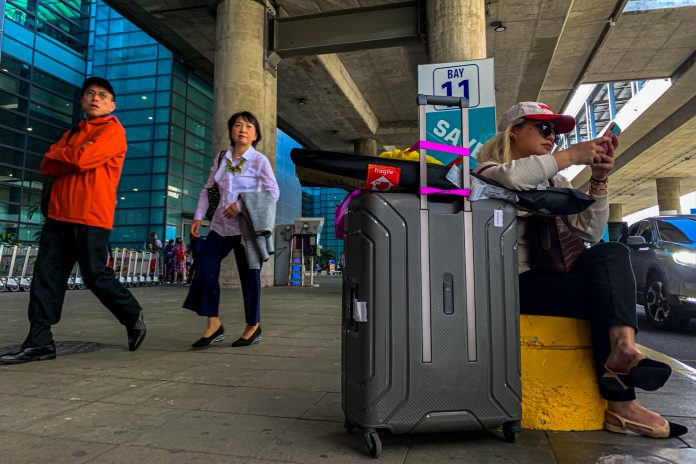A Catholic bishop in the Philippines called for the lifting of a ban on the deployment of Filipino health workers to other countries, saying it is “a very selfish stance.”
Bishop Ruperto Santos of the Episcopal Commission for the Pastoral Care of Migrants and Itinerant People said the government regulation is “unreasonable and uncharitable.”
“To ban [health workers] to work abroad is not a solution,” said the prelate, adding that the government should instead promote the working conditions of the workers.
The bishop called on the government to make the salary of medical frontliners “just and fair” and to provide “safe and secured working conditions.”
“They want to stay with their families, but with salaries insufficient to provide better sustenance and a brighter future, they will surely look for greener pastures,” he said.
“Let us take care, love and provide all the best to our healthcare workers, so they remain with us,” the bishop added.
In August, the Philippine government ordered the temporary suspension of the deployment of Filipino health workers abroad in the wake of the public health emergency due to the coronavirus pandemic.
The Inter-Agency Task Force for the Management of Infectious Diseases also urged government hospitals to hire these health professionals to augment their workforce.
The presidential palace said the deployment ban might be implemented until the coronavirus emergency subsided.
Prior to the government’s decision last month, the government has allowed medical and healthcare professionals with existing work contracts as of March 8 to be deployed abroad.
Before leaving the country, health workers are asked to sign a declaration signifying their knowledge and understanding of the risks involved as advised by the Philippine government.
‘Nonsensical policy’
One of those affected by the ban was Anna Reyes, who asked that her identity be withheld.
She has been working as a nurse in the Kingdom of Saudi Arabia for seven years until she came home to the Philippines in February 2019 to study and apply for work in the United Kingdom.
She passed the examinations and was hired by a care home in the UK, a childhood dream she thought was already within her grasp.
Unfortunately, as she was living in the city of Davao in the southern Philippines, Anna needed to fly to Manila to take her medical examinations and to process her visa.
It was a process very familiar to her after working for several years abroad. But just as she was about to fly to Manila, the coronavirus pandemic erupted.

The government later allowed health workers to fly out of the country, but only those who have secured their contracts by March 8.
The government said the ban was a response to the country’s need for health workers who would be working in local health facilities.
“I actually worked in a public hospital in Davao, but the salary was only a little over US$300 a month,” said the 35-year old nurse.
“The reason why I worked abroad is because the country’s rotten health care system is taking advantage of us,” she said.
She recalled that when she started working as a nurse after finishing her studies she had to pay for her own training, which she said was “very expensive.”
In 2011, she flew to Saudi Arabia and “sacrificed seven years of my life to get the experience I needed to fulfill my dream.”
“And then the government will just say ‘no, you can’t do that,’” she said.
The nurse said she is experiencing depression as she worries about how to repay for all the money she borrowed to process her work application in the United Kingdom.
“I love to serve the people, but I cannot do it here,” she said. “You will be demoralized by how the government looks down on nurses,” Anna added.
She was supposed to be among those who were allowed to fly out of the country, but due to the lockdown she was not able to complete her documentary requirements to leave.
Opposition senator Risa Hontiveros said the deployment of health workers abroad “will not only provide economic relief for their families [but] will also aid the revival of the domestic economy.”
She said that if the government insists on the ban, the salaries of health workers must be increased and they should also be given additional benefits.
Anna and other nurses who have been affected by the ban has since formed “PrisoNurses,” or “imprisoned nurses.”
The group aims to mobilize nursing professionals to take action and ensure that their concerns will be heard by the government.
The group has now at least 2,600 members, “a fraction of the number of people whose lives are put on hold by the government’s nonsensical policy,” said Anna.









